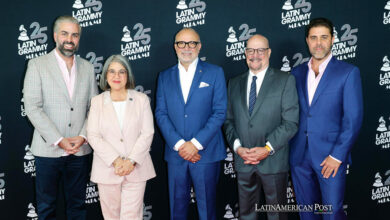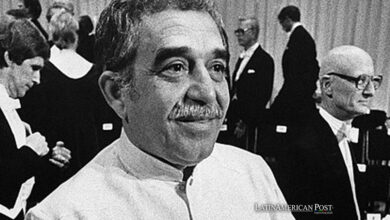Oscars 2022: “King Richard”, a producer of champions
“King Richard” is another of the Oscar nominees in the Best Picture category. To continue with our special, this is our review

Photo: Warner Bros. Pictures
”
LatinAmerican Post | Staff
“King Richard” is nominated for the Best Picture category at the Oscars. In this category, almost every year of the last decade, there is a biographical film. King Richard is the installment for this 2022. The film tells some episodes of the life (although not all) of Richard Williams, father and coach of the famous tennis players Serena and Venus Williams.
This film not only meets the quota of biography in this category but also that of self-improvement, a genre that the Academy likes and has already awarded other times. An example of this is “A possible dream”, the story of a white family that takes in a black teenager and helps him overcome his social and economic difficulties so that he can win a sports scholarship and thus go to university. In “King Richard”, a father from Compton, California, will train his daughters with discipline and love so that they can become the champions of a “white sport”, tennis.
A story without a climax
As is often the case with all biographies of people still alive, this film lacks a climax. His main character is almost perfect, without flaws. This, of course, produces no conflict or knot in the story. Except for a couple of fights with his wife or confrontations with young people from the neighborhood, we don’t see any scene on the screen that puts his characters in conflict. Even events that could help develop some complexity in the characters, such as Richard having to tell Serena that the trainer has only agreed to train Venus, happen off-screen.
This is not to say that the story of Venus and Serena is flat or lacking in complexity. The tennis players grew up in a city in southern Los Angeles County. Compton is a city with high crime and poverty rates and is recognized in African-American culture for being the birthplace of famous rappers. The Williams’ older sister, Tunde, in fact, was killed in a shooting when she was 31 years old. This atmosphere of violence and gangs is barely hinted at in the film and is portrayed in an uncritical and naive way. The story of the sisters trained by the father is shown more as that of two great girls who are better than the boys in their neighborhood than as that of two young girls who grew up in a scenario of socioeconomic complexities.
On the other hand, perhaps because of the desire not to offend any of the celebrities on which the characters are inspired, the film leaves out another topic that could be interesting: the family environment of the Williams. Before becoming the father of Venus and Serena, Richard Williams was already the father of five children: three men and two women who do not appear in the production, perhaps because Richard is an absent father in the lives of his non-tennis champion children. Oracene Pierce, the mother of the tennis players, was also already the mother of three girls before conceiving them. In the film, the stepsisters of Venus and Serena are nothing more than extras who surround and applaud the young tennis players.
Also read: Oscars 2022: The Unfulfilled Promises of “Dune”
A producer of champions
At the beginning of the film we see Richard Williams looking for a coach for his daughters. He explains to all the possible “mentors” that he has a plan for them, that he knows, even before they were born, that they will both be champions. What makes this story different from others in which we have seen villainous fathers and mothers who exploit their children (Michael Jackson, Britney Spears, Luis Miguel, Amy Winehouse, etc)? On the one hand, that here it is about sport, which, apparently, is a less vicious form of fame than that of music. On the other hand, Richard’s decision that his daughters not compete from such a young age. The protagonist says the same dialogue at least five times: “I want them to be girls.” Finally, he also criticizes the white parents of the country club children who exert cruel pressure on their children.
However, if this story were not told in terms of self-improvement, we would be scandalized by a father who plans the lives of his daughters before they are even born and some girls who must assume that plan without question if they want to get out of their social context. It is true that the character of Richard is affectionate and endearing; it is true that his intentions, like those of the film, are good (he wants his daughters to stay off the streets, not to fall into crime, into drugs, in short). However, the character and the film end up applying a facile formula that only vindicates the system of which the children who were neighbors of Venus and Serena are victims: “if you try hard, if you work and have discipline, you will get out of here”. The poor man is poor because he doesn’t have a father with a plan.
This is the same formula as “The Pursuit of Happyness”, also starring Will Smith, who plays Richard Williams here. Maybe these inspirational stories work to some or maybe they add something to the representativeness of African Americans on screen; but it is enough to look a little more closely to know that discipline and effort are not the guaranteed formula for social advancement. Furthermore, the film is unsportsmanlike, limiting the allure of competitive sports and the excellence of female athletes to a mere distraction from violence and drugs.
Will it win the Oscar?
Although these types of stories are attractive to the Academy for their uncritical and inspirational character, “King Richard” does not have much more than that: a tender story between a father and his favorite daughters. It may be thought that this is not enough to win the award, but it has been the case with others such as “Green Book” or “12 Years a Slave”.





